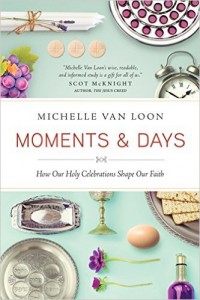 In some corners of the Evangelical world, hybridizing select bits of Jewish practice with Christian faith is a way to declare that these individuals or churches really take the Bible seriously and/or love Israel. I’ve seen women dancing with tallit (prayer shawls), each woman wielding her tallit as though she were a matador. I’ve watched a few of my Gentile friends embrace various kosher-style diets. And I’ve been the recipient of awkward verbal bouquets consisting of a gushed “You’re so lucky to be Jewish. I wish I was Jewish, too!”
In some corners of the Evangelical world, hybridizing select bits of Jewish practice with Christian faith is a way to declare that these individuals or churches really take the Bible seriously and/or love Israel. I’ve seen women dancing with tallit (prayer shawls), each woman wielding her tallit as though she were a matador. I’ve watched a few of my Gentile friends embrace various kosher-style diets. And I’ve been the recipient of awkward verbal bouquets consisting of a gushed “You’re so lucky to be Jewish. I wish I was Jewish, too!”
The Christians-Wishing-To-Be-A-Bissel*-Jewish micro-trend was recently the subject of a great piece in the New York Times Magazine. (Click here to read it.) Author Maud Newton writes,
Most modern-day Protestant fundamentalists believe that the Jews are (at least until Jesus’ return) God’s chosen people. If Christ himself was Jewish, and followed Jewish tradition, the thinking goes, why shouldn’t Christians consider the ways their savior actually lived and practice the rituals he practiced? Many evangelicals have traded contempt of the past for a respectful, almost fetishistic view of Jews and, now, Jewish tradition. What this means in practice is extremely complicated. There’s a big difference between building bridges across cultures to foster understanding and building bridges so you can run across and ransack the other side.
The best lines in the piece came a few paragraphs later: “…this fetishistic view of Judaism and the role of Israel in the advent of the end times sees Jews as a people to be herded together so that another group can achieve its eternal reward. To me that’s a troubling catechism. It’s ultimately not so far from the ‘Christ-killers’ narrative of yore, just with an Israel-friendly varnish.”
I alluded to this in a post I wrote last summer when I reflected briefly about the stories the Church has told me about my identity as a Jewish believer. Though romanticizing the idea of Israel is preferable to Replacement theology**, I have two concerns with the trend toward grabbing bits of Jewish practice as a byproduct of Dispensational eschatology** as tokens of a professed love for Israel:
- It marginalizes Jewish people: Newton used the word “fetishistic”, which captures the irrational affection for Jewish certain symbols and practices. Jewish people – particularly those who don’t practice in this way – may be left feeling as though they’ve been hijacked. That’s a sour cousin to Paul’s desire to provoke his Jewish brothers and sisters to healthy jealousy by the demonstration of grafted-in faith of the Gentiles to whom he’d been sent.
- It lacks an informed filter: There is the Bible, and then there is commentary, tradition and lots and lots of opinion. Sometimes well-meaning and ill-informed Christians haven’t really thought through where the practice or ritual in question has come from. Is it Biblical? Or a cherished tradition?
As a Jewish believer, I most definitely want to see Gentiles respecting and thoughtfully connecting with the roots of their faith. (See Romans 11.) I am happy when I see Christians having a Seder***. (Communion without the context of a Seder makes absolutely no sense. Bonus sermon over.) I’d like to see more Gentiles who observe the liturgical year begin asking questions about how this calendar almost completely overwrote the Holy Days prescribed by God and celebrated by the predominately Jewish early church. Even though there are weird misfires, I am deeply grateful for the Gentiles who’ve become cheerleaders and fans of my people. Even the ones who have Christian Bat Mitzvahs.
Bottom line: We need all the friends we can get. History has proven that to us over and over again.
*Bissel is Yiddish for “a little bit”
**There are no doubt bones to pick with both Wikipedia entries, but in the name of basic overview, they’ll have to do unless someone can shoot me a couple of better links to…for lack of a better word…replace them.
***And not just a sermon about what a Seder is. No. A real Seder. With food.
What are your thoughts? Let’s discuss!











